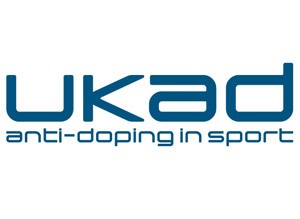UK Anti Doping digging into past to determine if any connection extends to present cycling
 Linda McCartney pro cycling team founder Julian Clark has sparked off an investigation into the former squad after he contacted UK Anti-Doping with information about drug use on the team.
Linda McCartney pro cycling team founder Julian Clark has sparked off an investigation into the former squad after he contacted UK Anti-Doping with information about drug use on the team.
Clark founded the squad in 1998, securing funding from Paul and Linda McCartney after marketing the idea to them of having an all-vegetarian squad riding some of the top races in the sport. It grew to the point where it secured a wildcard invite to the 2000 Giro d’Italia, where David McKenzie raced to a solo stage win.
However the team collapsed prior to the start of the 2001 season when it emerged that two replacement sponsors trumpeted by Clark to replace the departing Linda McCartney company, Jaguar and Jacob’s Creek, had not actually signed deals to do so.
Clark was later sentenced to prison for fraud, and has recently finished his term. According to The Times, he contacted UK Anti-Doping and the newspaper has itself provided further evidence, including testimony from three people within the squad who said that drugs were used by many – but not all – riders.
Former professional Matt DeCanio previously made allegations about drug usage on the team on his Stolen Underground website and is one of those who has come forward to UK Anti-Doping.
“The team definitely knew that some of the riders were dirty,” the American told The Times. “If you wanted to use drugs, you wouldn’t lose your job.
“Doping wasn’t pushed — they weren’t giving drugs out. The team wanted to hire riders who knew how to dope themselves, did it on their own and who would come to races prepared.” DeCanio says that he believes he did not get selected for the team for the Giro d’Italia in 2000 because he would not take drugs. “They knew I was clean,” he said. “They didn’t select me and they definitely knew which riders were on drugs.”
Before the race start two riders – Olympic champion Pascal Richard and the Australian rider Ben Brooks withdrew from the race. At the time the team blamed stomach problems, but in a book about the team press officer John Deering said Richard had used a food supplement that team management noticed contained a banned substance on the eve of the race.
He said that Brooks had also used the supplement and this was the reason he also withdrew. Other sources have suggested that Richard had an issue with his haematocrit level and was quietly asked to leave the race, but this has not been officially confirmed.
DeCanio has reportedly said that one rider struggled to dilute his blood prior to a surprise doping test, and that team management helped him at the time. He stated that former Motorola pro Sean Yates, who was working with the team, did not run a doping programme but did nothing to stop the riders themselves doing so.
Yates subsequently worked with Team CSC, Discovery Channel and Sky, and recently retired from the latter position. He has insisted that his departure from the post has nothing to do with Sky’s zero tolerance stance and the stipulation that anyone involved with doping would be fired.
The newspaper states that UK Anti-Doping is seeking to determine if any of the behaviours which were tolerated at Linda McCartney have been carried on into British cycling today.
UK Anti Doping has today confirmed that it has received ‘an increased amount of information from a range of partners and the public about a range of sports and issues.’
It said that patience would be needed before outcomes would be reached. “All valid information that could lead to a prosecution will be followed up. However building a non-analytical case (where no positive test exists) frequently takes time to ensure the evidence is robust and verified.
“All potential charges are independently reviewed before action is taken to ensure sufficient evidence exists to proceed.” It appealed for additional information.
Meanwhile Max Sciandri, who competed on the squad and then worked after his retirement guiding young riders for British Cycling and now the BMC Racing Team, has played down the story. “It’s now a matter of everybody making accusations of everybody,” he told The Times. “Every day you open the paper and someone is making an accusation about someone else.”